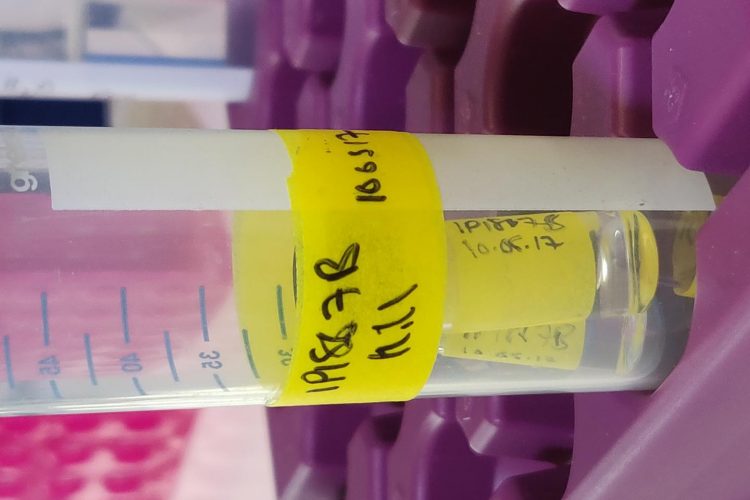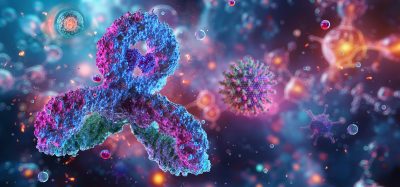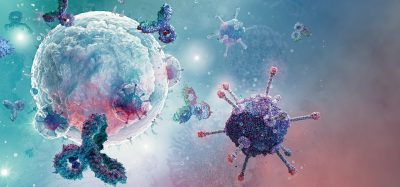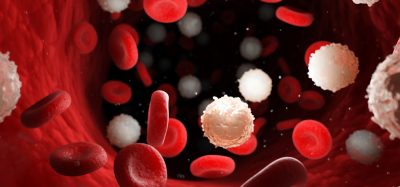New drug could be used for targeted cancer therapies
Posted: 7 August 2019 | Rachael Harper (Drug Target Review) | No comments yet
A new drug called IP1867B, which could be used for future treatments of brain tumours, is being examined.


A vial of IP1867B (credit: University of Portsmouth).
Dr Richard Hill has led a research team at the Brain Tumour Research Centre at the University of Portsmouth, working with the University of Algarve (Portugal), the University of Liverpool (UK) and Innovate Pharmaceuticals to examine a new drug called IP1867B. This could be used for future treatments of brain tumours.
The researchers showed that IP1867B (which is a combination of aspirin, triacetin and saccharin) reduced the size of adult high-grade glioma brain tumours in a mouse model, while reducing the gastrointestinal tract problems experienced when conventional aspirin tablets are taken. This suggests that IP1867B could be effective against glioblastoma (GBM), one of the most aggressive forms of human brain cancer.
In all the variations of drugs tested, including separating out the three key components of IP1867B, it was considerably more effective than any combination of other components and some currently used chemotherapeutics. All three ingredients, which are already approved for use in the clinic, have been shown to kill tumour cells without having an effect on normal brain cells.
IP1867B was shown to reduce the action of Epidermal Growth Factor Receptor (EGFR), and block the Insulin-like Growth Factor 1 pathway thereby reducing the tumour’s ability to acquire resistance to these EGFR inhibitors. IP1867B effects multiple targets, helping to ‘light up’ the tumour and reverse acquired resistance.
“We will continue to urgently investigate which drugs will combine most effectively and safely with IP1867B, to improve these results even further and reduce the need for long-term use,” said Dr Hill. “There is still much work to be done, but many reasons to be excited for future studies.”
The study was published in the journal Cancer Letters.
Related topics
Analysis, Drug Discovery, Research & Development, Targets, Therapeutics
Related conditions
glioblastoma (GBM)
Related organisations
Innovate Pharmaceuticals, the University of Liverpool, University of Algarve (Portugal), University of Portsmouth
Related people
Dr Richard Hill








